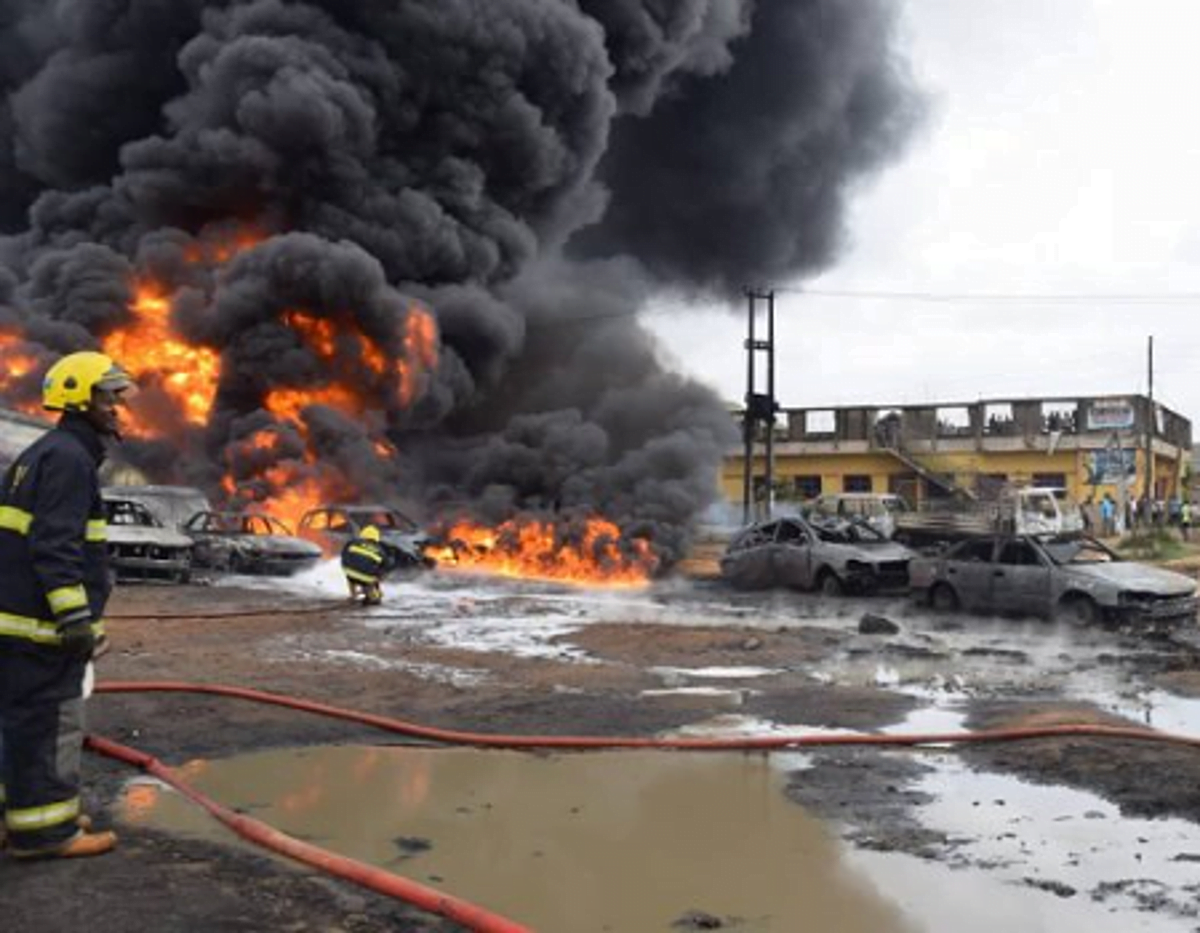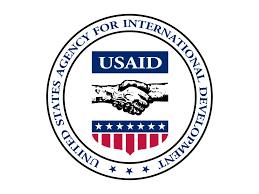Editorial
The need for swift action to address growing menace of mass abductions in Nigeria

In recent days, Nigeria has witnessed a distressing surge in abductions carried out by Islamic terrorists and bandits.
These criminal acts have targeted vulnerable individuals, including women, pupils, and internally displaced persons.
The alarming frequency of these incidents calls for an immediate re-evaluation of national security strategies to effectively combat this wave of criminality.
The recent abductions highlight the inadequacy of the existing national security strategies in dealing with the relentless onslaught of terrorists and bandits. The government must acknowledge the urgency of the situation and take swift action to address this growing menace.
The mass abductions bear an eerie resemblance to the dark days of the Muhammadu Buhari administration, where bandits and terrorists operated with impunity. It is imperative that the current administration led by Bola Tinubu takes decisive measures to prevent a return to this era of fear and insecurity.
The Salafist modus operandi, which targets soft targets such as women, pupils, and internally displaced persons, is a cause for grave concern. The recent kidnappings of schoolchildren in Sokoto and Kaduna, as well as the abduction of women in Borno State, underscore the urgent need for enhanced security measures to safeguard these vulnerable groups.
The responsibility to address this crisis falls squarely on the shoulders of the federal government. Merely ordering security forces to rescue the abductees is not enough. The government must demonstrate unwavering determination to put an end to mass kidnappings once and for all.
Combating terrorism and banditry requires a comprehensive approach that involves not only the security forces but also the cooperation of local communities, intelligence agencies, and neighboring countries.
The government must prioritise collaboration and information sharing to effectively dismantle these criminal networks. The recent surge in abductions in Nigeria demands urgent action from the Bola Tinubu administration.
The protection of soft targets, swift government intervention, and collaborative efforts are essential to ensure the safety and security of all Nigerians. The time to act is now, as the future of the nation hangs in the balance.
Over the past seven years, the northern region of Nigeria has witnessed a disturbing trend of mass abductions of schoolchildren by terrorists and bandits.
Shockingly, a total of 1,548 innocent children have fallen victim to these heinous crimes in 11 separate incidents between April 2014 and June 2021. The first of these incidents was the infamous abduction of 276 schoolgirls from their dormitories in Chibok, Borno State, on April 14, 2014.
Unfortunately, this brazen act of terror did not deter the Salafists, who have since gone on to raid several other schools, including the Bethel Baptist Secondary School, UBE Rama Primary School, Government Science Secondary School, and Federal College of Forestry Mechanisation, all in Kaduna State.
In Zamfara State, 317 schoolgirls were kidnapped from Government Girls Secondary School.The situation reached a boiling point on December 11, 2020, when 300 students at Government Science Secondary School in Kankara, Katsina State, were abducted during a visit by the then-president, Buhari, to his Katsina country home.
Bandits also targeted Government Science College, Kagara, in Niger State, and made off with 72 students. These incidents all occurred under the cover of darkness, with the victims taken into the forest and negotiations facilitated by third parties.
Sadly, this is not the first time such a tragedy has occurred. In February 2018, 113 girls were kidnapped from Government Girls Secondary School in Dapchi, Yobe State. While most of the girls were eventually released, one, Leah Sharibu, remains in captivity after refusing to renounce her Christian faith.
More recently, in April 2021, bandits kidnapped 17 students from Greenfield University in Kaduna State, killing five of them and holding the remaining 14 captive for over a month. The families of the victims were forced to pay over N100 million in ransom before their loved ones were finally released.
These incidents are a stark reminder of the dangers faced by schoolchildren in northern Nigeria and the urgent need for the government to take decisive action to protect them.
No fewer than 169 pupils of Salihu Tanko Islamic School, Tegina, Niger State, were equally abducted on May 30, 2021, amongst several other mass abductions which have exposed the nation’s ineffectual security system, leaving the authorities red-faced with shame.
The security situation in Nigeria remains a cause for concern, as citizens continue to fall victim to the activities of terrorists and bandits. The recent hijacking of the Abuja-Kaduna train and the subsequent abduction of passengers is a stark reminder of the need for urgent action to be taken.
Despite the assurances of the current administration, there has been little evidence to suggest that the government is making any headway in tackling the security crisis. The mass abductions of citizens continue to occur with alarming frequency, and the failure to prosecute Boko Haram suspects only serves to undermine the government’s credibility on this issue.
It is heartening to note that the government has made significant investments in procuring arms and ammunition for security agencies and officers. However, this alone is not enough to address the root causes of the security crisis.
The government must also take concrete steps to address issues such as poverty, unemployment, and corruption, which are often cited as drivers of insecurity. As Nigerians, we must all come together to demand better from our leaders. We cannot afford to sit back and watch as our fellow citizens are subjected to violence and terror. It is time for action, and it is time for change.
The recent surge in mass abductions in Nigeria has highlighted the urgent need for the government to take decisive action to address the security challenges facing the country.
The government’s recent procurement of N5 trillion worth of tanks and armoured fighting vehicles for the security forces, as reported by the NBS, must be justified by preventing abductions and other criminal acts through proactive surveillance and intelligence operations, as well as active inter-agency coordination and collaboration.
Experts have suggested that addressing mass abductions requires a multifaceted approach that involves both short-term and long-term strategies. The government should prioritise improving security infrastructure and intelligence capabilities to prevent abductions from occurring in the first place.
This can be achieved by deploying security forces to vulnerable areas, increasing surveillance, and implementing checkpoints along known routes used by abductors.Prompt investigation of abduction cases and bringing perpetrators to justice is also crucial.
This requires enhancing the capacity of law enforcement agencies, including training personnel, improving coordination between different security agencies, and ensuring consequences for those involved in abductions.
International cooperation is also essential since many of these security challenges transcend national borders. The Nigerian government should work with regional and international partners to share intelligence, coordinate efforts to combat transnational criminal networks, and address the root causes of insecurity.
Corruption and governance failures have been known to exacerbate security challenges by undermining the effectiveness of law enforcement and perpetuating social inequality.
Therefore, the government should prioritise efforts to combat corruption, improve governance, and ensure accountability to build trust and confidence in state institutions.
The establishment of state police forces is essential in deterring mass abductions by actively patrolling and being present in vulnerable areas like rural communities, highways, and border regions.
Editorial
Endless turnaround maintenance of Port Harcourt Refinery


Since 2021 when the turnaround maintenance of the Port Harcourt Refinery started, there have been heaps of failed promises of the production commencement date.
First, it was former Minister of State for Petroleum, Timipre Sylva promising severally of commencement of productions of Port Harcourt Refinery, but these promises never came to limelight till he resigned for political calling.
Next was the Managing Director of Port Harcourt Refinery, Ahmed Dikko who at a time said the turnaround maintenance was 98 percent completed and would have commenced operations in December 2023. That promise again was unfulfilled.
The Group Managing Director of Nigerian National Petroleum Company Limited (NNPC Ltd), Mele Kyari equally said that Port Harcourt Refinery would start production in two weeks time, that elapsed in April, 2024. April has come and gone.
The Head, Corporate Communications of NNPC Ltd, Olufemi Soneye was also quoted to have said that the reason for non-commencement of operations of the Port Harcourt Refinery was regulatory and compliance tests. As it seems, all efforts to restart the operations of the Port Harcourt Refinery and by extension other refineries, have been futile.
Political watchers have adduced poor management, corruption, sabotage and lack of political will as some of the problems confronting smooth operations of our refineries. They particularly accused those benefitting from importation of petroleum products as being responsible for the non-functionality of the four refineries in Nigeria.
Political will, of course, plays a major role in shaping directions the policies go. Political will in this instance translates to good leadership, and in this case, the buck stops at the table of the Federal Government, particularly the President, who doubles as the Minister of Petroleum.
Petroleum being the mainstay of the country’s economy should be given all the attention it deserves. The reason being that virtually everything in the country is tied to the petroleum products situation.
Since the announcement of the removal of fuel subsidy on May 29th, 2023 by President Tinubu on assumption of office, life has not been the same in Nigeria. Cost of living has risen astronomically, consequent upon the hike in price of petroleum products.
In the midst of plenty, courtesy of the abundant human and material resources, Nigeria is still often described as the poverty capital of the world. What an irony! Turnaround maintenance of the refineries subsists without end. Every hope is now placed on the Dangote Refinery, a private outfit. While the diesel price slash is commendable, how on earth will a single private entity take the whole country to Eldorado?
We cannot regulate what we do not produce, this is a natural principle that cannot be contravened. We only pray that Port Harcourt Refinery comes on stream someday.
We look forward to that time. Our position is that Government agencies saddled with the responsibility of providing fuel and other petroleum products to Nigeria must do their work and justify their pay.
This onerous task is mandatory and statutory to them and shall amount to disservice if they fail. Our prayer is not for them to fail, but that they fulfil their vows and make the country great for the overall interest of all.
Tecnimont, the Italian company undertaking the $1.5 billion rehabilitation project of the Port Harcourt Refinery has through its Local Managing Director, Gian Fabio Del Cioppo pledged to fulfil the terms of contract, so as far as we are concerned, there is nothing stopping the country from achieving the target of the turnaround maintenance project.
The only clog would of course be lack of political will, which we know could be cultivated. So let all hands be put on deck to achieve results.
Editorial
Gas explosions: Nigeria and its avoidable tragedies


Nigerians die daily for reasons so avoidable it would make a 19th century peasant weep. The deaths are often a product of systemic wickedness, nonchalance, and greed. Too often have gas explosions claimed the lives of Nigerians untimely. Whether it is the leaders refusing to enforce the checks and balances for personal gain, or citizens selling defective gas cylinders, it all balls down to a collective aversion for kindness.
The internet is rife with news of this tragedy occurring in a Sisyphean cycle. Jolted by the cries of the populace, the leaders promise reprieve, release press statements and in the weeks that follow, little to nothing happens. “One must imagine Sisyphus happy,” Camus wrote. Unfortunately, our Nigerian dead imagine nothing.
While people relaxed from their labour, were preparing for the Workers Day celebrations, nine people including a pregnant woman were injured in Tuesday’s gas cylinder explosion at Alaba Lane, Alayabiagba Community of Ajegunle-Apapa, Lagos.
“The fire explosion started around 1:30 pm and immediately, two tricycles were burnt, school children coming back from school were affected. A particular young man was seriously affected as his body was peeling off, but rushed to the Gbagada General Hospital,” according to reports.
The usual suspect is, of course, negligence, as the Director of Lagos State Fire and Rescue Service, Margaret Adeseye, puts it: “preliminary investigation revealed that several various gas cylinders traded within the neighbourhood have one triggered from a susceptible leakage leading to the snapping of a high tension cable and resultant Fire.”
The explosion razed down “four commercial tricycles, six lock-up shops, a bungalow part of properties, while salvaging adjoining structures including a major fuel service station.” Children were hurt, the future of the nation plunged, as usual into avoidable misfortune.
The way out is through. The press releases are wonderful PR statements but they do not bring back the dead, as was the case in Ogun State recently where a truck explosion cost the nation another life. The leaders must enforce the checks and balances put in place. The law is no decoration.
We mustn’t wait until a politician’s family member is involved in a tragic gas accident before “banning” (as is the default response of the Nigerian leadership). The leaders must realise that such misfortunes are contagious, and money is hardly a bulwark against 3rd degree burns in a nation where all its doctors are fleeing.
Renewed Hope requires renewed action. This is all that Nigerians ask of its leaders. All agencies responsible for monitoring trucks, cylinders need to work together to defeat this peculiar evil. Like COVID-19, gas explosions are no respecter of persons.
Of course, citizens too must do their part and resist the allure of profit over the death of others. A society without empathy is headed for a dystopia. It will not matter the price of petrol or electricity tariff, if all that matters is the pursuit of super profit at the expense of one’s neighbour. We owe it to the dead to live fully and graciously. To escape, as we should, avoidable tragedies.
Editorial
Nigeria must act now to mitigate flood disasters


As the rainy season looms ahead, a palpable sense of concern grips the nation.The recent cautionary message from the Federal Government to 31 state governors regarding the looming threat of floods from April to November serves as a wake-up call, demanding swift and concerted action from both state and federal authorities.
Presented by Minister of Water Resources and Sanitation Joseph Utsev, the 2024 Annual Flood Outlook paints a bleak picture, underscoring the urgent need for preemptive measures. It is not merely an emphasising advisory; it is a resounding call to arms.
The spectre of past flood calamities in Kano, Taraba, Lagos, and other states still haunts our collective memory.
The haunting images of devastated homes, displaced families, and shattered livelihoods serve as poignant reminders of the human toll exacted by our complacency.
It is imperative that we glean lessons from these tragedies and take proactive steps to forestall the impending catastrophe.
The warning issued by the Federal Government is crystal clear: floods are imminent, and the time to act is now.
The Nigeria Hydrological Services Agency’s classification of 148 local government areas across 29 states, including Lagos, Kano, and Delta, as high flood-risk zones emphasising the gravity of the situation.
Every moment of inaction heightens the risk to countless lives and properties. State governors, local authorities, and relevant agencies must set aside differences and collaborate effectively to implement robust flood preparedness and mitigation measures.
From infrastructure reinforcement to early warning systems and community awareness campaigns, a comprehensive approach is imperative to safeguard vulnerable communities.
As responsible stewards of our nation’s welfare, we cannot afford to be caught off guard. Let us heed the warning, unite in purpose, and proactively address this looming threat.
The cost of inaction is too grave to contemplate, and the time to act decisively is now. This is not a drill.
The minister’s revelation that 31 states face high flood risks, while all 36 states and the Federal Capital Territory will experience moderate flooding, demands immediate attention and collective action.
“The high flood-risk states are Adamawa, Akwa Ibom, Anambra, Bauchi, Bayelsa, Benue, Borno, Cross River, Delta, Ebonyi, Edo, Imo, Jigawa, Kaduna, Kano, Katsina, Kebbi, Kogi, Kwara, Lagos, Nasarawa, Niger, Ogun, Ondo, Osun, Oyo, Plateau, Rivers, Sokoto, Taraba, Yobe,” the Minister said.
We cannot afford to wait until the waters rise and lives are lost. The time to act is now. It’s imperative that federal and state governments, agencies, and local communities join forces to mitigate the impact of floods.
This requires a coordinated response, including public awareness campaigns, infrastructure upgrades, emergency preparedness plans, and investment in flood mitigation projects.
The future of our nation depends on it. Let us heed the warning and take proactive steps to build a more resilient Nigeria, where lives and properties are protected from the ravages of flooding. The clock is ticking; let us act now to avoid a catastrophe.
While 31 states face high flood risks, the remaining five states must also be proactive in their preparations. It’s not enough to simply warn residents to relocate from flood-prone areas; state governments must provide safe and conducive spaces for relocation, complete with essential services like relief materials, healthcare, and security.
This will help mitigate the trauma faced by displaced families. Citizens, too, have a critical role to play. They must be willing to relocate from their homes and comfort zones to prevent avoidable deaths and losses. The stark reality is that flood disasters are devastating, as seen in 2023 when 45 lives were lost, 171,545 persons displaced, and 22,666 homes partially damaged, with 5,358 others completely destroyed.
The economic toll was equally staggering, with a $4.6 billion bill that significantly dented Nigeria’s GDP. Let us learn from the past and take collective responsibility for flood preparedness. State and federal governments, agencies, and citizens must work together to build a more resilient nation, where lives and properties are protected from the ravages of flooding. The time to act is now.
In 2022, flooding claimed 662 citizens; 2.43 million others were displaced and 3,174 were injured nationwide, per NEMA.
The financial losses were estimated at $9.12 billion by the Federal Government, and by a United Nations agency at $7 billion. A UN report stated that food insecurity was aggravated in the country as 569,000 hectares of farmland were destroyed by the flood.
According to the then Minister of Water Resources, Suleiman Adamu, 178 LGAs in 32 states were declared “highly probable flood risk states.”
Although climate change remains a global concern, leading to flash floods, droughts, forest fires, and cyclones, the government must not make excuses.
They need to take lessons from previous floodings and replace their nonchalance with strategic actions and campaigns. They must do all they can to avoid the repetition of losses of lives and properties.
The citizens must play their part by clearing drainage in their vicinity, cultivating good waste disposal and environmentally friendly culture. To entrench this, the government must place strict surveillance and enforce stiff penalties against erring residents.
State governments should demolish structures erected on flood paths to enable rainwater to drain appropriately.
NGOs in the environmental niche should activate campaigns distilled in local languages through the media to prepare citizens for the flood.
The federal and state governments should be proactive in the deployment of ecological funds to provide guardrails against natural disasters. This must be used for pre-emptive measures like building bridges, desilting rivers, evacuating canals and drainage, and building dams and levees. The dams would help preserve excess rainfall to irrigate farmland during the dry season.
The government must fully embrace its onerous duty to safeguard lives and properties.
-
capital market2 years ago
Rt.briscoe, FBNH, Others halts negative performance of stock market
-
Finance3 months ago
Court orders Sen. Victor Umeh to repay N136m bank debt to AMCON
-



 Abuja Update2 months ago
Abuja Update2 months agoUNDP, FG partnership needed to achieve inclusion, equity- Minister
-
Abuja Update1 month ago
Banks drive stock market performance with N147bn gain
-



 Business1 week ago
Business1 week agoTingo Group unveils Tingo Electric, Tingo Cola drink at Lagos launch
-



 Health2 weeks ago
Health2 weeks agoCapacity training will reduce migration of health workers- NPHCDA
-
News4 months ago
Oil thieves sponsoring malicious media campaign against Navy – Spokesman
-



 Infotech1 month ago
Infotech1 month agoWorld Backup Day: NITDA urges Nigerians to ensure backup of data
















